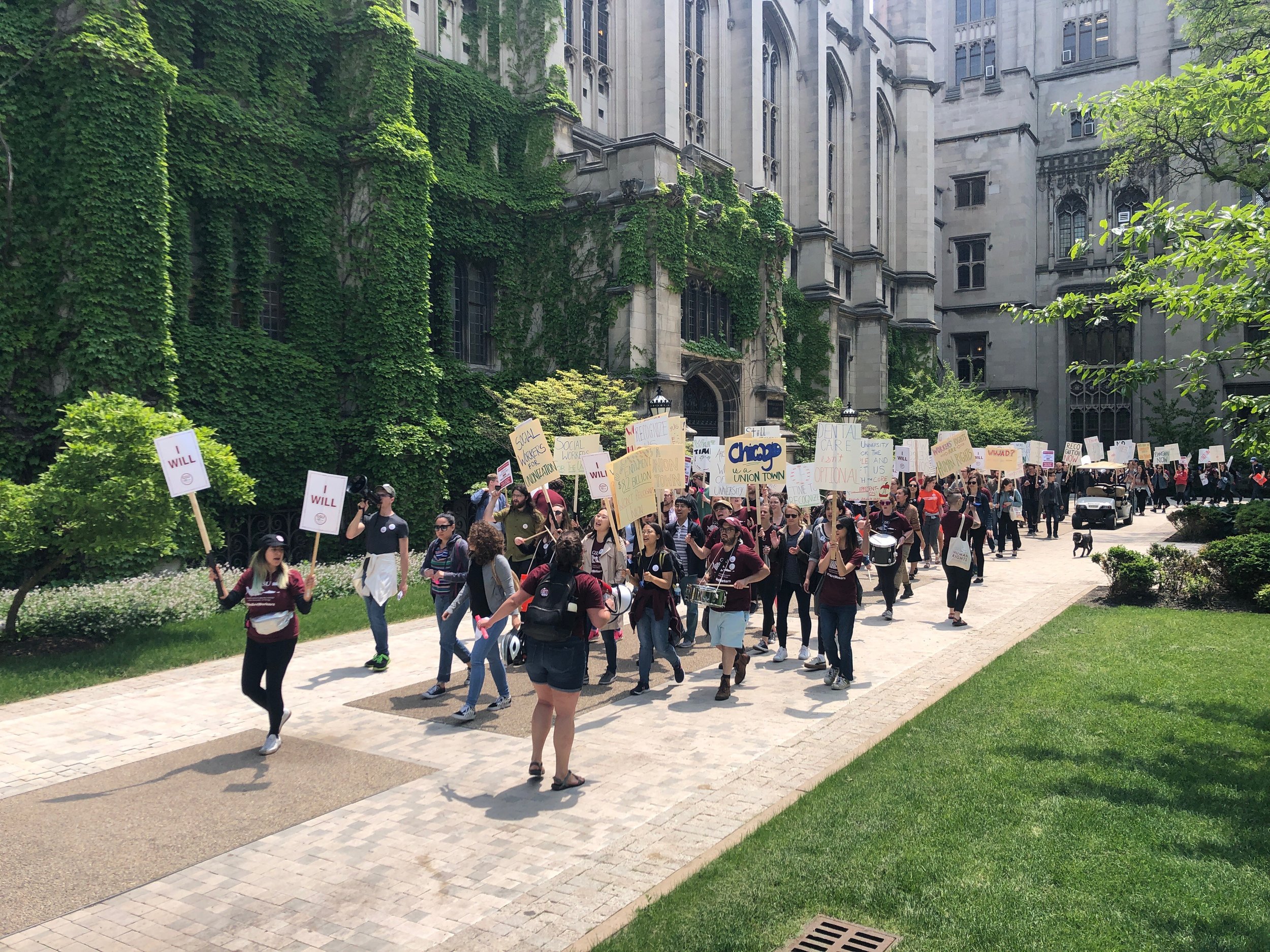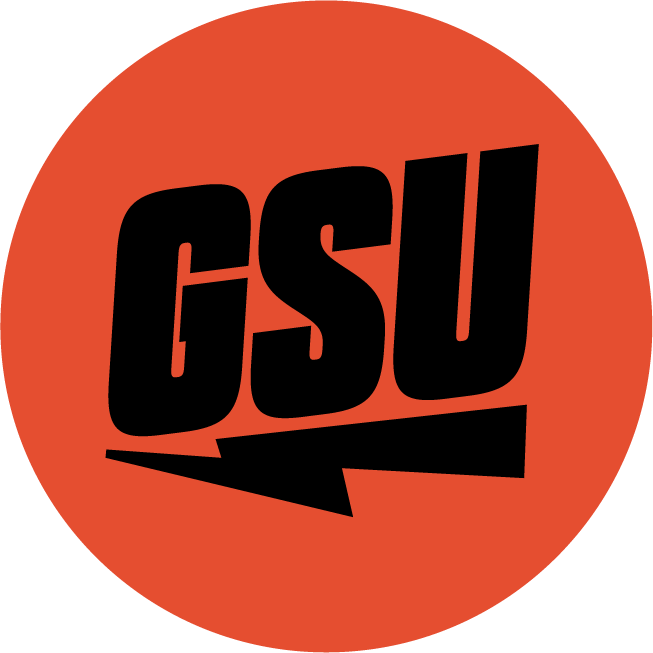
GSU HISTORY
The organizing journey has been long for the University of Chicago graduate workers. GSU was founded in 2007, and in March 2023, our election win was certified for, not the first but, the second time.
In October 2017, 1,103 graduate workers voted yes to unionization: that’s the reason we chose 1103 as our local number. The university administration’s response was to immediately appeal the election certification, and to stall that appeal until a viciously anti-union appointment to the NLRB was set for confirmation in early 2018. To avoid setting an unfavorable legal precedent that could have endangered other established graduate unions, GSU withdrew its NLRB petition and opted to press for direct recognition by the university. These efforts came to a head with a walkout and, in June 2019, a full-blown strike.
Our three-day strike was an unhappy compromise between what was possible to do and what needed to be done, and the UChicago administration weathered it easily. For those of us who took to the picket lines, however, it was an unparalleled experience that taught us a great deal about the practical meaning of solidarity and our own power as workers.
Before we could fully digest the lessons of our unsuccessful strike, we found ourselves facing yet another series of crises. In January 2020, our national affiliate at the time decided to abandon our campaign, no longer seeing it as viable in the changed legal landscape. The COVID-19 pandemic hit soon thereafter, putting still further strain on our organizing capacity and presenting us with a stark choice: to become a second-rate pseudo-local, or disaffiliate and go independent. We voted overwhelmingly in favor of the latter option. In the end, our former national’s withdrawal proved to be a blessing in disguise, as it freed us to replace the staff-driven, benchmark-obsessed organizing model that had been imposed on us up until then with true rank-and-file control.
The first great success of this rejuvenated GSU was a sustained refusal to pay our Student Services Fee, a particularly insidious form of wage theft that lost all semblance of justification during the pandemic, when campus services were not accessible anyway. The campaign started in November 2020 and ended with a resounding success fourteen months later, when the administration announced the fee would be waived.
Following our union’s previous affiliation difficulties, we decided that UE would fit our membership because of its commitment to rank-and-file organizing and its respect for local chapters’ autonomy.
We formally affiliated with UE in 2022, just before launching our card campaign at the end of September. We needed about 900 cards to file a petition with the NLRB. On the first day, we signed 1000 cards. By November, we had 2000 cards. Membership sent an early message to the University: graduate students demand a union, and we followed through on election day with 92% voting yes in February of 2023.
Six years after our initial election win, the university finally moved to recognize our victory. We have been bargaining since the end of May 2023.
